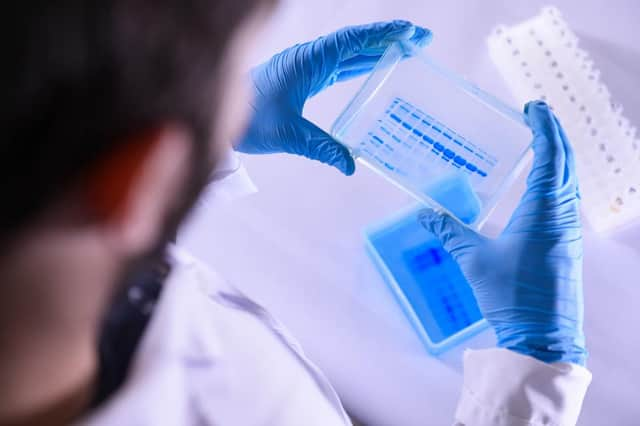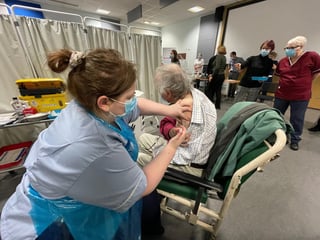New Covid treatment: what is the new drug and how does it work as large-scale trials begin in the UK


A new treatment is being trialled on Covid-19 patients, in the hope that it will help to prevent them from developing severe illness.
A patient at Hull Royal Infirmary became the first in the world to take part in the large-scale global trial on Tuesday 12 January.
Advertisement
Hide AdAdvertisement
Hide AdIt comes amid fears that new coronavirus infections in the UK could rise to more than 250,000 a day.
Government scientists have also told ministers that the rollout of the Pfizer/BioNTech and Oxford/AstraZeneca vaccines may not decrease the mortality rate until late February.
Here’s everything you need to know about the new treatment, how it works and what the initial trials have shown.
How does the treatment work?
The new drug, known as SNG001, focuses on patients inhaling the protein interferon beta, which the body produces when it is met with a viral infection.
Advertisement
Hide AdAdvertisement
Hide AdInterferon beta, which is commonly used to treat multiple sclerosis, helps to defend the body against a nasty virus, preparing it to anticipate a viral attack.
The new treatment is a special formulation of interferon beta, which is administered directly to the airways through a nebuliser.
It is hoped that, after inhalation into the lungs, the protein will prime the immune system to trigger a stronger anti-viral response - even in patients with weaker immune systems.
Covid-19 seems to suppress production of interferon beta so it can infiltrate the immune system more easily.
Advertisement
Hide AdAdvertisement
Hide AdPrevious clinical trials of the treatment have shown the protein is able to stimulate an immune response.
Those with asthma and other chronic lung conditions were shown to tolerate the treatment, too.
Where was it developed?
The new treatment was developed at Southampton University Hospital, after it was discovered that people with lung diseases - like asthma and chronic obstructive pulmonary disease - often had decreased levels of interferon beta.
It is being produced by Synairgen, a Southampton-based biotech company.
How effective is the treatment?
Advertisement
Hide AdAdvertisement
Hide AdLarge-scale trials of the treatment have commenced in the UK thanks to promising early findings.
The results of a smaller, phase two clinical trial carried out last year suggested the treatment reduced the chances of a coronavirus patient in hospital developing severe disease by almost 80 per cent.
Patients were two to three times more likely to recover from Covid-19, Synairgen has claimed.
The biotech company has said the early trial indicated “very significant” reductions in breathlessness in patients who had received the treatment.
Advertisement
Hide AdAdvertisement
Hide AdFurthermore, it also said the time that patients who were given the drug spent in hospital was reduced to six days, from an average of nine days.
Only one hundred patients were tested, so more trials are needed before the drug can be authorised for public use.
What will happen during the large scale trials?
That’s where the new, “phase three” trials come in.
It will involve more than 600 patients in 20 countries and there are hopes that it will be completed by early summer.
During the large-scale trial, half the participants will be administered the treatment, while the other half will be given a placebo.
Advertisement
Hide AdAdvertisement
Hide AdIf there are good results, the team expects that the drug will be authorised for use in the UK and other countries.
A course of treatment with the new drug could cost around £2,000.
Who was the first person to receive it?
The first person to receive the treatment at Hull Royal Infirmary was Alexandra Constantin, 34, who was admitted to the hospital with coronavirus on Monday 11 January.
She inhaled interferon beta as a mist through a nebuliser.
